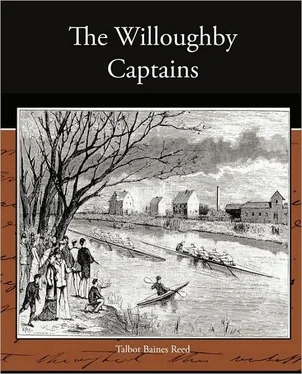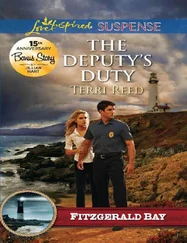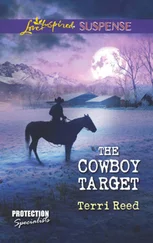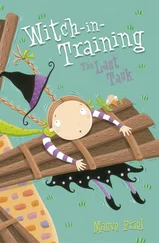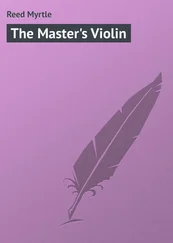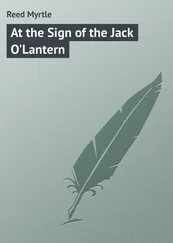The doctor’s words had a strange inspiriting effect on this shy and diffident boy. The recital of all the difficulties in the way was the most powerful argument to a nature like his, and when at length the doctor wished him good-night and told him to take till the following day to decide, Riddell was already growing accustomed to the prospect of his new duty.
For all that, the day that ensued was anxious and troubled. Not so much on account of Welch’s. On that point his mind was pretty nearly made up. It seemed a call of duty, and therefore it was a call of honour, which Riddell dare not disobey. But to leave the schoolhouse just now, when it lay under the reproach caused by the boat-race accident; and worse still, to leave it just when young Wyndham seemed to be drifting from his moorings and yielding with less and less effort to the temptations of bad companions — these were troubles compared with which the perils and difficulties of his new task were but light.
For a long time that night Riddell sat in his study and pondered over the doctor’s offer, and looked at it in all its aspects, and counted up all the cost.
Then like a wise man he took counsel of a Friend. Ah! you say, he talked it over with Fairbairn, or Porter, or the acute Crossfield — or, perhaps, he wrote a letter to old Wyndham? No, reader, Riddell had a Friend at Willoughby dearer even than old Wyndham, and nearer than Fairbairn, or Porter, or Crossfield, and that night when all the school was asleep, little dreaming what its captain did, he went to that Friend and told Him all his difficulties about Welch’s, and his anxieties about young Wyndham, and even his unhappiness about the boat-race; and in doing so found himself wonderfully cheered and ready to face the new duty, and even hopeful of success.
Next morning he went to the doctor and told him he was ready to enter on his new duties. Dr Patrick was not the man to flatter his head boy or to inspire him with undue hopes; but he was undoubtedly gratified by the decision, and Riddell felt encouraged in the consciousness of his sympathy.
At call-over that evening the Welchers had the pleasure of being informed by the doctor of the new arrangements proposed for their welfare, and, it need hardly be said, were considerably moved thereby.
At first they were disposed to regard the affair as a joke and a capital piece of fun. But when that evening Riddell put in an appearance at supper, in their house, and when Telson was intercepted bringing over his late master’s goods and chattels to the study next but one to that of Silk, they began to take the matter in rather more seriously.
For the first time for a long while Welch’s house seemed to be of one mind — a mind made up of equal mixtures of resentment and amazement and amusement. Probably, had they been more accustomed to thinking together, they would have summoned a monster meeting, as Parrett’s would have done, to discuss the situation. As it was, they resolved themselves into several small groups, each of which dealt with the topic of the hour in its own way.
The juniors of course had a good deal to say on the subject. Pilbury, Cusack, Philpot, Morgan, and a few other kindred spirits held a council of war in the study of the two former immediately after supper.
“Rum start this, eh, Pil!” said Cusack, by way of opening proceedings.
“You know,” said Pil, confidentially, “I’m not surprised. He made such a regular mess of it in the schoolhouse.”
“Don’t know what’s the good of his coming here, then,” said Philpot; “our fellows aren’t a bit quieter than the schoolhouse.”
No one was bold enough to dispute this peculiarly modest description of the order of Welch’s house.
“I wonder if he’s been kicked out of the captaincy as well?” asked Cusack, who was apparently convinced in his own mind that the new move was a degradation for Riddell.
“I don’t know,” said Morgan; “Paddy said something about it being a good thing for us to get the captain of the school as head of our house.”
“Oh, ah — a jolly good thing,” said Pilbury; “jolly lookout for us if he’s stuck here to pull us up whenever we have a lark.”
“Bless you, he can’t pull a fellow up!” said somebody. “They said he used to now and then in the schoolhouse.”
“Not he. He’s afraid to look at a chap.”
“I say,” said Cusack, “rather a spree to fetch him, eh, you fellows, and see how he does. Eh?”
“I’m game,” said Pilbury; “what shall we do? Smash in his study-door?”
“Oh, no,” said Cusack, “no use doing that. Let’s give him ‘Bouncer’ to start with.”
“That ought to startle him up,” said Philpot, laughing, “if he’s not used to it.”
“Rather — open the door a bit, Morgan. Now, you fellows, are you all game? All together.”
And with that the party struck up at the top of their voices the famous old Willoughby chorus, of which the first verse runs as follows:
“Oh, Bouncer was a Willoughby chap, sir,
Bouncer! Bouncer! Bouncer!
Upon his head he wore his cap, sir,
Bouncer! Bouncer! Bouncer!
Below his cap he wore his head,
His eyes were black and his hair was red,
And he carried his bat for a cool hundred ,
Bouncer! Bouncer! Bouncer!”
This poetic record of the virtues and accomplishments of their legendary school hero gave ample scope, as the reader may surmise, for spirited declamation; and on the present occasion more Welchers than Riddell were startled by the sudden and vehement outburst of the patriotic hymn. Indeed, as it appeared to be a point of honour with the vocalists to pitch no two voices in the same key, the effect was even alarming, and suggested the sudden letting loose of a menagerie.
The singers waited meekly for a few seconds to see whether their efforts had met with the success they deserved. But as a dead silence reigned, and no one came, they considerately determined to give their audience another chance; and therefore launched forthwith into the second verse, which was delivered with even more dramatic power than the first:
“Old Bouncer stood six foot and an inch, sir,
Bouncer! Bouncer! Bouncer!
And four foot round his chest was a pinch, sir,
Bouncer! Bouncer! Bouncer!
Twelve stone two was his fighting weight,
And he stroked our boat for the champion plate,
And ran his mile in four thirty-eight,
Bouncer! Bouncer! Bouncer!”
This time the heroic efforts of the melodious juniors had their reward. Before the last line was reached the door of the new captain’s study opened, and Riddell appeared in the passage. His first appearance in his new capacity was naturally a matter of curiosity on every hand; and as he approached the scene of the noise he became aware that almost every occupant of the passage was standing at his door, watching curiously for what was to happen.
He certainly did not look, as he walked nervously down the corridor, the sort of fellow to quell a riot; and any one might have prophesied that he was not likely to come off any better now than he did when he once went on a similar errand to the stronghold of the Limpets.
And yet the weeks that had elapsed since then had not been thrown away on Riddell. Would the reader like to hear what his thoughts were as he neared the scene of his trial?
“What had I better do? If I get in a rage I shall only make a fool of myself; if I report them to the doctor I shall be shirking my own work; if I remonstrate mildly and do no more, my chances in Welch’s are done for, and these fellows who are on the lookout for my failure will get their crow. I must get on the right side of these youngsters if I can, so here goes!”
With this reflection he reached the door just as the third verse of “Bouncer” commenced, the performers having carefully turned their backs so as to appear wholly unconscious of a visitor. Verse three referred altogether to the intellectual attainments of the wonderful Bouncer.
Читать дальше
